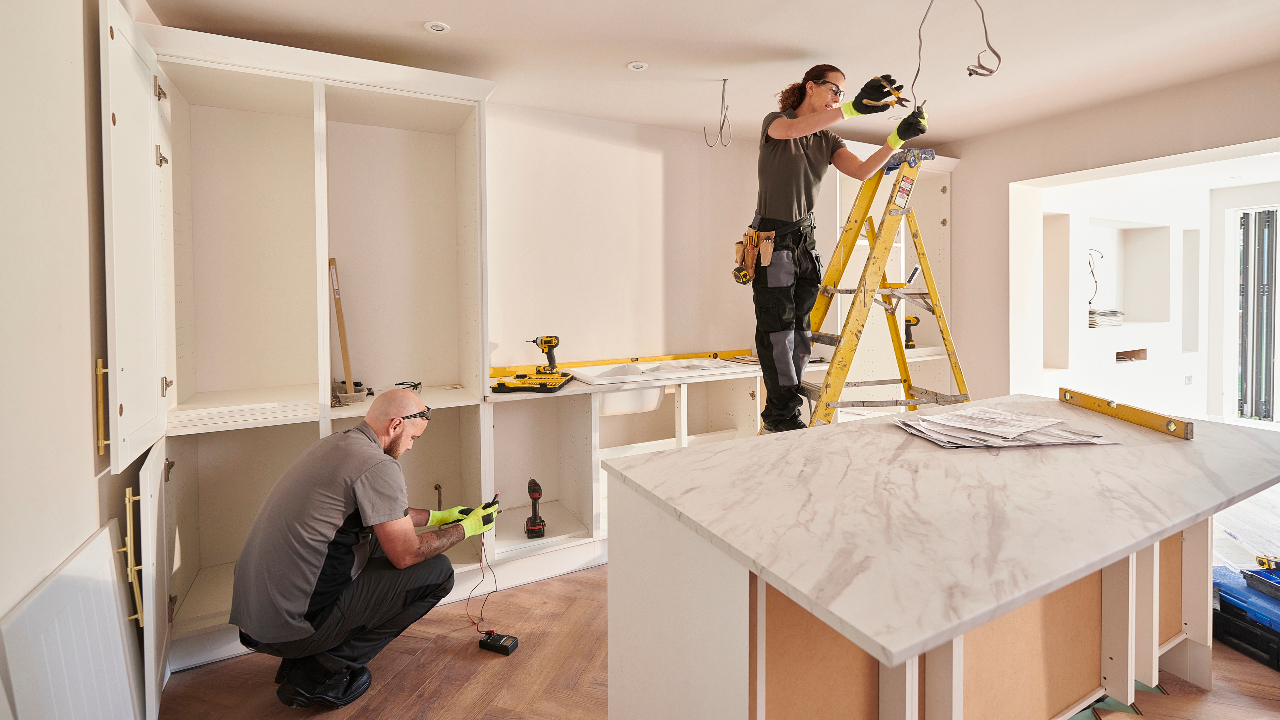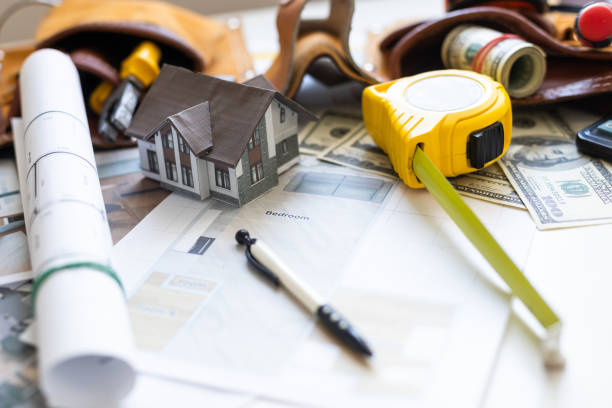Managing a home improvement project can be both exciting and overwhelming. Whether remodeling a kitchen, finishing a basement, or adding an extra room, timing and budgeting ensure the project runs smoothly. An estimate is one of the most necessary factors influencing any home improvement’s schedule and financial side.
Having a reliable and detailed estimate helps you understand the total costs earlier. It allows you to plan your project timeline realistically. This post will discuss how cost estimates affect home improvement timelines and why relying on professional services can be the key to successful project management. We’ll also share practical tips for improving your estimating process and common pitfalls to avoid.
The Relation Between Time Management and Cost Estimates
When it comes to home improvement, time and money are closely linked. Delays in one can quickly lead to overspending on the other. Without a clear understanding of costs, homeowners often face unexpected expenses that can slow progress or force difficult compromises.
A simple approach to projects like cost estimating in construction helps break down all expected expenses, from materials and labor to permits and inspections. This clarity allows for better planning and more efficient resource allocation throughout the project. With a reliable estimate early on, you can develop a realistic and manageable timeline.
For example, if certain materials have long lead times or specific tradespeople are in high demand, these factors can be scheduled accordingly to avoid costly downtime. Conversely, inaccurate estimates often lead to rushed work or hold-ups, as the budget either runs short or needs adjusting mid-project.
Consider a kitchen remodel in which the homeowner underestimated custom cabinets’ cost and delivery time. The pauses in receiving these cabinets can push the entire project back weeks. Without estimates that include lead times, this issue might have been avoided by opting for off-the-shelf cabinetry or ordering materials earlier in the schedule.
Why Reliable Cost Estimates Improve Budget Control

Budget overruns are a common source of stress in home improvement projects. Many homeowners start with a rough idea of expenses but struggle when costs escalate unexpectedly. Precise cost estimating acts as a financial roadmap. It helps you prioritize spending and decide where to save or invest more for quality. You can confidently plan payments and cash flow with a detailed construct estimate.
This is particularly important if you’re financing the project through loans or credit, where managing funds efficiently is crucial to avoid penalties or increased interest. For example, an estimate might reveal that upgrading to energy-efficient windows significantly raises pre-opening costs but saves money on utility bills in the long run.
This information lets homeowners decide whether the investment fits their budget or requires adjusting other project parts.
The Importance of Outsourcing Professional Services
Experts commercial estimating services bring expertise and precision to the estimating process that few homeowners can match. These services specialize in creating detailed and comprehensive cost projections for projects of all sizes using the latest tools and industry data. Engaging skilled personnel can provide valuable insights into current market rates, material availability, and labor trends.
This information is essential for developing timelines that reflect real-world conditions rather than ideal scenarios. Additionally, these experts can help identify potential risks or hidden costs early, allowing you to plan contingencies and adjust your schedule proactively.
This foresight reduces surprises during construction and keeps your project on time and within budget.
How Estimates Enhance Project Scheduling

Scheduling is a crucial component of any home improvement project. It involves coordinating multiple trades, ordering materials, securing permits, and preparing the site. An accurate cost estimate ensures that each step is timed appropriately and funds are allocated where and when needed.
For example, suppose your estimate shows that custom cabinetry will take longer and cost more than standard options. In that case, you can factor this into your schedule to avoid delays waiting for these pieces. Likewise, suppose permits and inspections are accounted for in the estimate. In that case, you can plan these steps to prevent hold-ups.
This level of detailed planning ultimately leads to a smoother project experience, reducing downtime and minimizing the risk of costly last-minute changes.
Tips for Improving Your Home
- Plan Thoroughly Before You Start
Research and outline your project goals, budget, and timeline. Clear planning helps prevent costly mistakes and keeps the project running smoothly.
- Invest in Quality Materials
Choose durable, high-quality materials that offer long-term value. Cheap materials may save money upfront but often lead to repairs and replacements sooner.
- Focus on Energy Efficiency
Upgrading insulation, windows, and appliances can reduce energy bills and increase your home’s comfort. Look for ENERGY STAR-rated products and consider smart thermostats.
- Hire Licensed Professionals for Complex Work
Hire certified experts to ensure safety and code compliance for electrical, plumbing, or structural changes.
- Maintain Good Ventilation and Lighting
Proper airflow and natural light improve your home’s atmosphere and reduce moisture-related problems.
- Keep Your Home’s Style Consistent
Ensure renovations match your home’s style and architecture to maintain aesthetic appeal and resale value.
What Not to Do During Home Improvement
- Skipping Permits and Inspections
Avoiding permits can lead to fines and problems when selling your home. Always follow local regulations.
- Overlooking Structural Issues
Cosmetic fixes won’t solve underlying problems like foundation cracks or water damage. Address these first.
- Underestimating the Budget
Underestimating costs is a common mistake. Always add a contingency for unexpected expenses.
- Attempting Complex Tasks Without Experience
Trying complex tasks without proper skills can cause damage and increase costs. Know when to call in professionals.
- Rushing Through the Project
Hurrying can lead to poor workmanship and mistakes. Take your time to do it right.
Conclusion
In-home improvement, time, and money management are inseparable. The estimation forms the foundation of a realistic timeline and a well-controlled budget. Homeowners who rely on expert services can expect fewer surprises, better scheduling, and more predictable costs. By investing time in thorough estimating at the start, you set your project up for success. It will ensure your home improvement runs on time, stays within budget, and delivers the results you envision.

